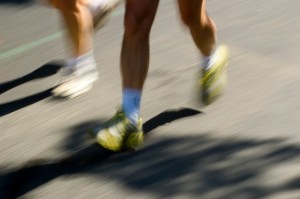 According to a study done at The Scripps Research Institute, brief workouts can reduce the risk of relapse in rats experiencing withdrawal from methamphetamine. Scientists found that neurons in the brain were affected by even the smallest amount of exercise. Even more promising is the fact that these neurons have never been identified with methamphetamine withdrawal before. These findings could allow for further research into medications for methamphetamine withdrawal.
According to a study done at The Scripps Research Institute, brief workouts can reduce the risk of relapse in rats experiencing withdrawal from methamphetamine. Scientists found that neurons in the brain were affected by even the smallest amount of exercise. Even more promising is the fact that these neurons have never been identified with methamphetamine withdrawal before. These findings could allow for further research into medications for methamphetamine withdrawal.
The study, published in the journal for Brain Structure and Function, was headed by Professor Chitra Mandyam, senior author. Mandyam said, “There was no correlation between [the] length of [the] workout and risk of relapse – it’s the mere involvement in the activity of physical fitness, rather than how much time you can put in. That’s really important if we are going to translate this to humans.”
According to the US Department of Health and Human Services National Survey on Drug Use and Health 2013, the number of methamphetamine users has risen in the United States. In San Diego County alone there has been a 55 percent increase in methamphetamine related deaths since 2008 according to reports.
Currently there are no approved methamphetamine dependency medications for withdrawal. Research such as this can be a pathway for new medications for meth withdrawal and methamphetamine addiction treatment.
Previously in 2013, Mandyam and her colleagues conducted lab tests with rats. They found that running during methamphetamine usage reduced the amount of methamphetamine consumed. The team concluded that running during methamphetamine use activated the reward system in the brain. Those rats that ran did not need to consume as much methamphetamine to be happy.
In this study, the scientists wanted to find out if running could have similar effects in rats withdrawing from methamphetamine. They conducted experiments on two groups. The first group was able to run while they were withdrawing from methamphetamine. The second group did not have access to running.
The rats were sequenced in two stages. The first stage was the addiction stage, where rats were able to choose how much methamphetamine they consumed. The second stage of the experiment was the withdrawal stage. During this stage, rats could choose how many times they would like to run.
The scientists found that the rats who were in the withdrawal stages of methamphetamine usage opted to run and showed a reduction in seeking the drug. A Scripps Research Institute Press Release stated that running “reduced the number of dopamine neurons in the periaqueductal grey (PAG), an area of the brain associated with pain-sensing.” They believe that this area of the brain is the source of relapse behavior in lab tested rats.
Similar tests found decreases in cocaine and nicotine dependent rats experiencing withdrawal who exercised.
These findings will require more research before they can be applied to humans but will help in the efficacy of addiction treatment in the future.
At New Directions for Women, our patients who are in residential treatment for the disease of addiction participate in many physical activities. These activities include personal training sessions, yoga, meditation walks at the Newport Beach Back Bay, and kayaking which lead to a healing of the body, spirit, and mind.
New Directions for Women is a treatment facility located in California that offers help for alcohol dependency to women of all ages, pregnant women in any trimester, and women with children. Founded in 1977, our courageous and visionary founders asked for the help of Newport Beach Junior League members to fulfill their vision of a tranquil home-like facility that would treat women with dignity and respect. Our caring admissions counselors are available 24/7 to take your call and answer any questions you may have on getting help. Reach us by phone at 800-93-WOMEN. We can help. Stay in the loop with New Directions for Women by connecting with us on Twitter, Facebook, or LinkedIn.












